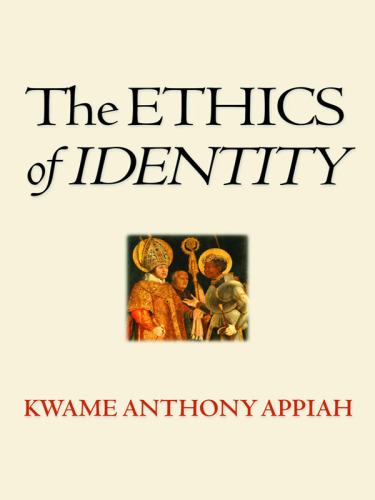
The Ethics of Identity
کتاب های مرتبط
- اطلاعات
- نقد و بررسی
- دیدگاه کاربران
نقد و بررسی

December 1, 2004
Taking a descriptive rather than a prescriptive view, Appiah, the Laurance S. Rockefeller University Professor of Philosophy and the Center for Human Values at Princeton University, contends that the principles of John Stuart Mill's philosophy of individualism as well as liberalism's focus on autonomy, liberty and humanity provide the groundwork for an ethics of identity. Establishing what he calls a "rooted cosmopolitanism," Appiah (In My Father's House) argues that such a model requires us to recognize that our own personal life-making is bound up with the ethical lives of others. Thus, as we form our own identities, we acknowledge the force of both our individuality and the force of the communities that help us construct our identities. A rooted cosmopolitanism, then, acknowledges the power of group identity-race, sex, religion-while, at the same time, cutting across group identity to foster values that enhance the greatest good for humanity. Although Appiah's architectonic sentences sometimes appear as labyrinths with no end, his forceful arguments will enter into the conversations about society, identity and liberalism begun by Mill and carried on by John Rawls and others.

January 10, 2005
Taking a descriptive rather than a prescriptive view, Appiah, the Laurance S. Rockefeller University Professor of Philosophy and the Center for Human Values at Princeton University, contends that the principles of John Stuart Mill's philosophy of individualism as well as liberalism's focus on autonomy, liberty and humanity provide the groundwork for an ethics of identity. Establishing what he calls a "rooted cosmopolitanism," Appiah (In My Father's House) argues that such a model requires us to recognize that our own personal life-making is bound up with the ethical lives of others. Thus, as we form our own identities, we acknowledge the force of both our individuality and the force of the communities that help us construct our identities. A rooted cosmopolitanism, then, acknowledges the power of group identity-race, sex, religion-while, at the same time, cutting across group identity to foster values that enhance the greatest good for humanity. Although Appiah's architectonic sentences sometimes appear as labyrinths with no end, his forceful arguments will enter into the conversations about society, identity and liberalism begun by Mill and carried on by John Rawls and others.
Copyright 2005 Library Journal, LLC Used with permission.

























دیدگاه کاربران